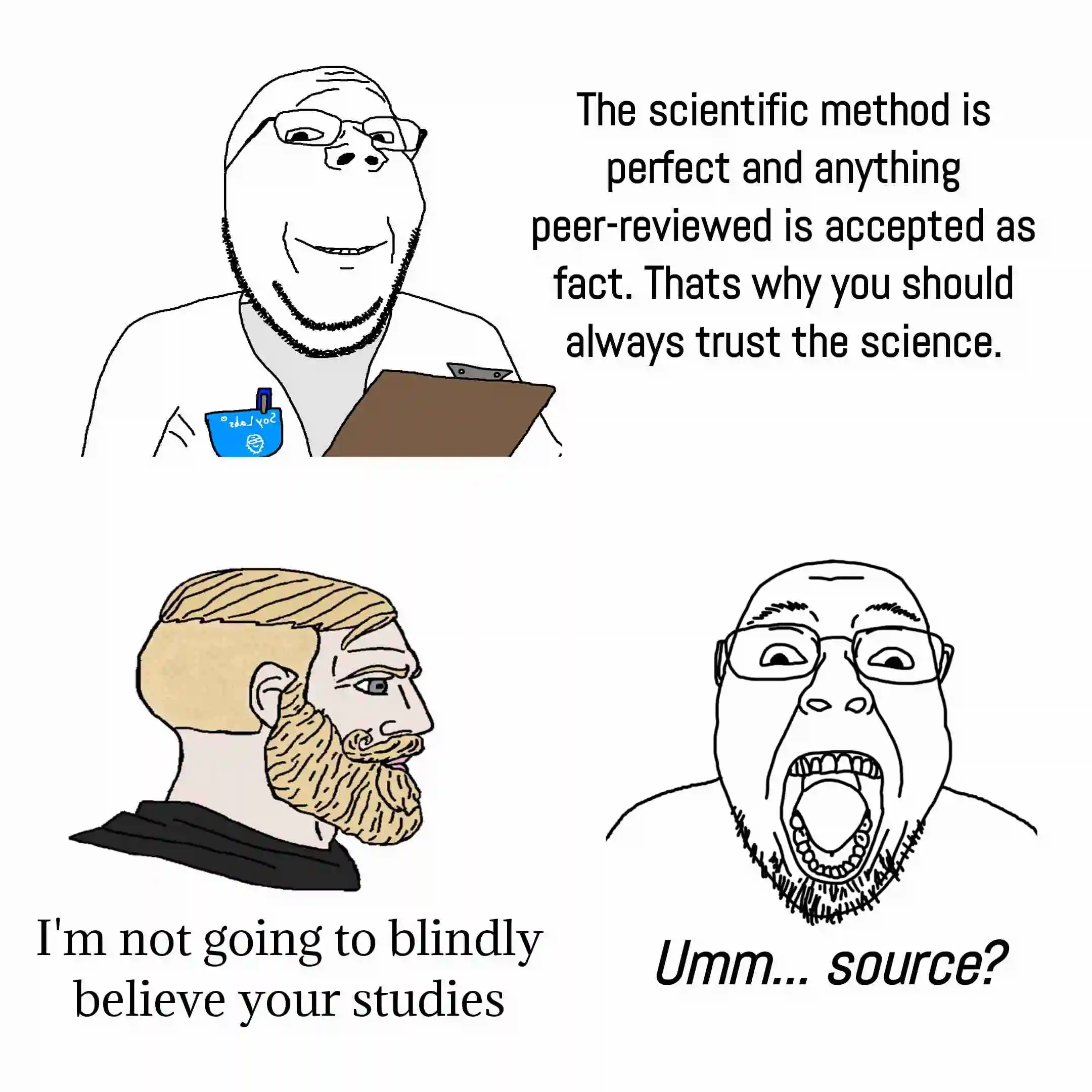this post was submitted on 18 Sep 2023
-150 points (12.5% liked)
Memes
50282 readers
1033 users here now
Rules:
- Be civil and nice.
- Try not to excessively repost, as a rule of thumb, wait at least 2 months to do it if you have to.
founded 6 years ago
MODERATORS
you are viewing a single comment's thread
view the rest of the comments
view the rest of the comments

Engineering is applied science. It's literally an entire community of people who volunteered to test Science. And then apply it.
And everything that came out of it is evidence that science works.
Except that's not actually how it worked. We didn't always have solid scientific models before things happened. Bicycles are the more famous example of something that existed for years before science could explain why it works, it's still not perfectly explained. Flight is also somewhat week in the scientific model for lift, but we can still make planes.
While there have been instances where scientists have theorized/discovered X is possible and then a way to do X was built, it's not required.
Hypothesis: adding this part or doing that thing will make it do what I want.
Experiment: do that change and see if it does the thing you want.
If it doesn't do what you want, go back to hypothesis step. If that's not science, idk what is.
You don't know what is. Science isn't do something and see if it works, it's about explaining why something works. Scientific experiments only disprove a hypothesis or can't disprove. Eventually a collection of results can be evidence of proof, but it's not actually proof.
You're more in engineering of wanting to do a thing and finding a way to accomplish that thing based on the current understanding of the relative science.
I literally just described the scientific method. Sure, it's not the kind of question most scientists would ask, but it's the same scientific method.
Just because the theoretical was finalized after the practical, doesn't mean that it isn't applied science.
We made wheels. We didn't know why it made sense for them to be circular, but we knew it was easier to load them.
Later on, we learnt about catenary tracks and how circular wheels are great for reducing friction by reducing the contact surface area, as well as the fact that rolling is easier compared to pushing or pulling.
All of these are things that we instinctually understood but didn't know how to explain.
This was, is and will be how science works. You see something happen, and you try to understand the how and why.
All of theoretical science comes from experimentation, which means on some level, you will require engineering. Similarly, all of engineering comes from the gradual process of perfecting how things works (or can work), which is science.